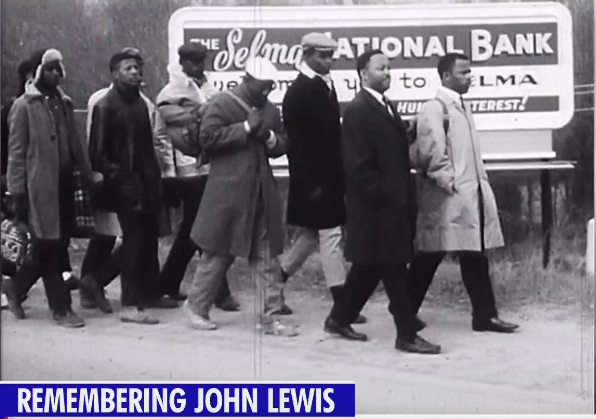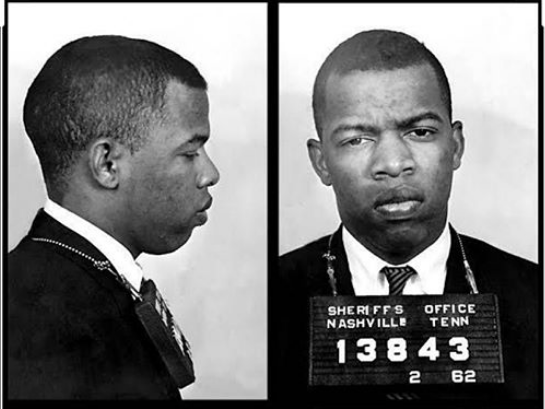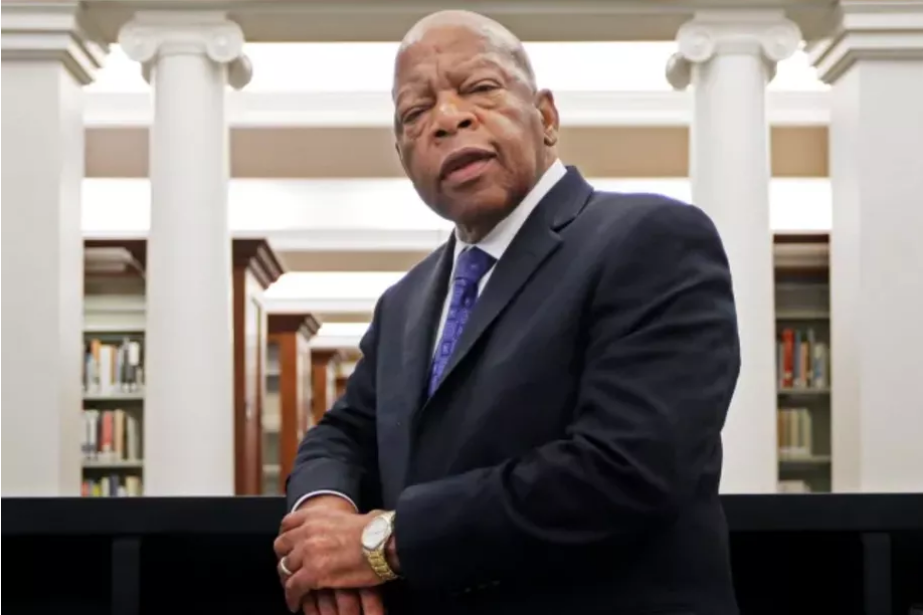|
Getting your Trinity Audio player ready...
|
A bold and relentless champion for civil rights passes the torch.
This story is about a Civil Rights icon who dedicated his entire life fighting to make America a better place for all to live — Rep. John Lewis.
“Get in good trouble, necessary trouble”: One of the many great quotable phrases Rep. John R. Lewis coined. For more than 60 years, Mr. Lewis has stood in the trenches and at the forefront of the battle for equal rights and justice not just for Black Americans but for all Americans. In the 1960s. Mr. Lewis walked hand in hand with other Civil Rights icons such as Martin Luther King, Jr, and Rep. James Clayburn to secure voting rights for African Americans and many more to come.
Bloody Sunday
In 1965 Mr. Lewis was joined by other people of goodwill as he attempted to march across the Edmund Pettus Bridge in Selma, Alabama, to Mongomery; they did not make it completely across the bridge.

As Lewis marched across the Edmund Pettus bridge in peaceful protest, he was set upon by a violent mob of police “officers.” The cops beat Lewis to a near-death experience. Eventually, he was picked up off the ground and taken back to the church on the other side of the bridge by other peaceful protesters. After the beating, Lewis regained his strength and was able to speak. He exclaimed, “I don’t understand how [Lyndon Baines] President Johnson can send troops to Vietnam to fight to protect Vietnamese, but cannot send the military to safeguard Black American citizens living in America.”
There are millions of people of color from Latin America and other third world countries who have come to America and benefited from the scars that John Lewis bore fighting for civil justice in America — even though they know it not.
The Civil Rights Act was later expanded to include provisions for the elderly, the disabled, and women in collegiate athletics. Its passage also paved the way for two other major pieces of legislation: the Voting Rights Act of 1965 and the Fair Housing Act of 1968.
As a Congressman, Lydon Baines Johnson did help to push through the passage of the Civil Rights Acts of 1957.
Lewis would later explain that getting in good trouble refers to — if you have to get arrested and go to jail, let it be for a good cause — a cause that is bigger than yourself — a cause that benefits others and, if necessary, helps the nation at large.

Rep. John Lewis served 33 years in the U.S. House of Representatives. On Saturday, President Trump ordered all flags to fly at half staff at the White House, all public buildings and grounds, all military posts and embassies for the remainder of Saturday in honor of Lewis’ service to country and his death. It didn’t take long for the arrogant flamethrower Rep. Karen Bass of California seeking likes on Twitter and followers on Facebook to politicize and polarize the death of John Lewis. Bass tweeted out that Trump should not say anything about John Lewis”s death. Bass is jockeying to be the Vice Presidential pick of Presidential Candidate Joe Biden.
Here is a portion of Bass’ tweet, “while the nation mourns the passing of a national hero, please say nothing. Please don’t comment on the life of Congressman Lewis,” Bass tweeted. WTF. Please, keep her away from the nuclear buttons.
Representative Jim Clyburn and friend of 60 years to John Lewis has joined the push to rename the Edmund Pettus Bridge after the late Representative John Lewis.
Former presidents Jimmy Carter, George W. Bush, Bill Clinton, and Barack Obama and lawmakers from both parties also praised Lewis for his lifelong dedication to civil rights. As the great champions of Civil Rights move on, they are passing the torch to another generation of dedicated and vigilant activists.
Staff Writer: Clinton Franklin email Clinton at CFranklin@mediacorpusa.com

“Think globally, act locally.”
It is crucial to be forward-thinking but not a forward person. “Be kind to everyone you meet because each carries his heavy burden…” Plato.
Embrace the three Constants: change, justice, and rightness.
The thought police are busy at work trying to suppress free speech. If allowed their march to madness, they will arrest your very thoughts.
Free Speech is thy Lord.’

